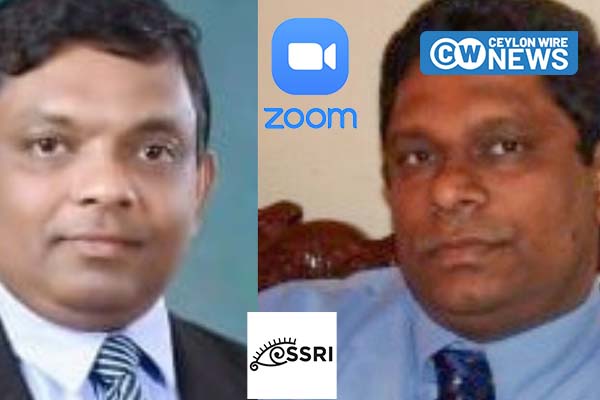Last Saturday (25th November ) witnessed a thought-provoking discussion hosted by the esteemed “South-South Research Initiative” think tank. The focal point of this engaging discourse, themed ‘Will the 2024 Budget Change the Direction of Sri Lanka?’ drew insights from key resource persons, Professor Priyanga Dunusinghe, a seasoned Professor of Economics, and Professor. P. P. A. Wasantha Athukorala.
In the initial segment, Professor Dunusinghe meticulously outlined his perspectives, categorizing them into three pivotal areas: lauding positive aspects, identifying prioritized sectors, and pinpointing areas that demanded more attention.
The professor commended the budget for its positive attributes, elucidating the framework of the IMF, EFF, and economic realities. Notably, the budget placed a heightened emphasis on soft infrastructure over hard infrastructure. The discussion extended to encompass policies, laws, regulations, and institutions related to investment, trade, taxation, financial discipline, and more. Correcting past missteps, liberalizing factor markets, managing political risks, and reinforcing the stability of the financial sector were underscored as key focuses.
Further, the discussion scrutinized sectors that garnered significant attention in this year’s budget, including revenue targets, logical coherence of proposals (e.g., the establishment of new universities), potential cuts in capital expenditures, and the role of provincial councils in the absence of elected councilors.
Conversely, areas deemed insufficiently addressed were also highlighted, such as the need for improvement in public transport, consultation levels on proposed reforms, and a brief analysis of weaknesses with limited proposals to curtail non-productive public expenditure.
Prof. Wasantha Athukorala delved into a comprehensive analysis, shedding light on crucial aspects and weaknesses of the budget. Notably, attention was drawn to the accuracy of income estimations and their consequential impact. The discussion further delved into the questionable necessity of certain budgetary proposals, including allocations for school-level cricket development, a Productivity Commission, Higurakgoda International Airport, national research policy formulation, global economic relations, and the establishment of an infrastructure corporation.
Professor Athukorala raised a thought-provoking question regarding the appropriateness of holding discussions on programs like ‘Aswasuma’—aimed at assisting the country’s impoverished—in upscale Colombo hotels.
In the final segment, the discussion culminated with an exploration of the critical problems embedded in the 2024 budget. Structural issues, concerns about debt sustainability, disconnect between fiscal and monetary policy, proposals lacking growth or development focus, and a dearth of emphasis on economic stability were meticulously scrutinized. The professor concluded by underscoring the necessity of timely and pragmatic proposals and policies in the budgetary process.









